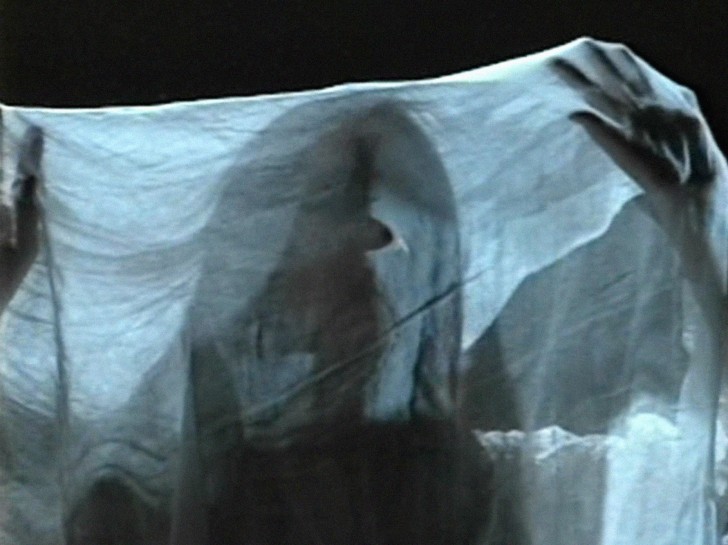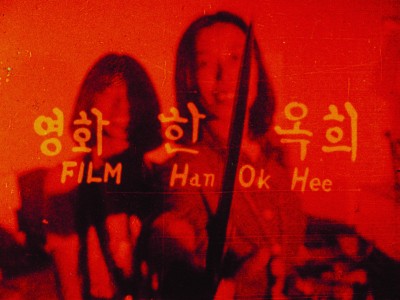
Running Koreans
The Silence of Love
Streaming
Running Koreans stands as one of the largest projects in Han Okhi’s career. Commissioned by South Korea’s first Minister of Culture, Lee O-young, it also demonstrates the recognition of her talent beyond the experimental film world. Running Koreans was shot in 70mm IMAX as a commemorative film for the 1993 Daejeon Expo—an international event that included 108 participating nations and drew more than 14 million visitors. The film portrays the 5,000-year history of the Korean people from its mythical origins into its technologically advanced future (pioneering video installation artist Nam June Paik and his TV cello make a cameo). The epic proportions of the project brought Han to such locations as Seoraksan, the third-highest peak in South Korea, and even all the way to Libya. Han orients this national history around footage of the Korean marathon runner Hwang Young-cho winning gold the previous year at the Summer Olympics in Barcelona. Representative of Han’s later work in exposition films, Running Koreans innovatively infuses associative montage and metaphor into the generally staid commercial genre of promotional film. Sadly, the soundtrack from the original 24-minute print has since been lost. In this 8-minute version prepared for the Harvard Film Archive, Han herself provides the narration over a new musical soundtrack.
In this later work, director Han Okhi returns to her origins as a scholar of Korean poetry to transform the verse of Han Yong-un (1879–1944)—popularly known as Manhae—into a collage of stunning “cinepoems.” Han’s short film features fifteen poems from the eponymous The Silence of Love, the only collection of poetry left to us by the iconic Buddhist, poet, and revolutionary. Since the collection’s publication in 1926, the subject, object or identity of its central love has remained widely debated. As scholar and translator Francisca Cho discusses, these fluctuations in meaning—a lover? Manhae’s beloved homeland enduring Japanese colonial rule? Buddhist enlightenment?—resound in the malleability of the titular nim, a word that evokes love, lover, beloved or, as Manhae proposes in the preface to his work, “everything yearned for.” Director Han Okhi takes on the formidable challenge of visualizing the manifold meanings of Manhae’s poetry through her signature experimental style. Utilizing digital effects and associative montage, her film creates a lush homage to the interconnectedness of the natural world and the human body, exploring the vitality and mortality running through both. The Silence of Love demonstrates a shift from the more pointed feminist interventions of Han’s earlier works with Kaidu Club, both in medium and in subject matter. Still, her devotion to cinema’s visceral ability to defy language manifests in this experimental collection of “cinepoetry.”
The Harvard Film Archive’s screening of The Silence of Love is accompanied by translations of the original Korean from Francisca Cho’s collection Everything Yearned For: Manhae’s Poems of Love & Longing.









